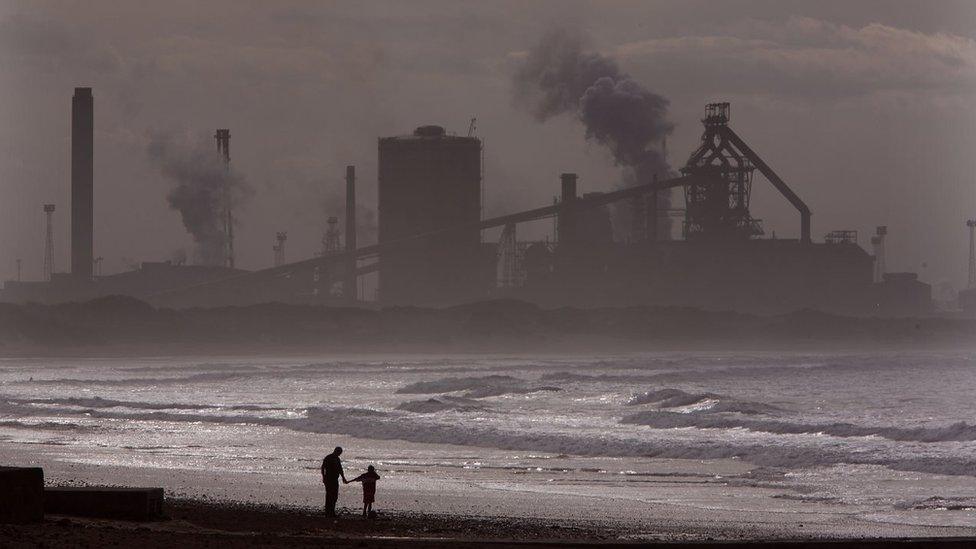What is the outlook for Britain's steel industry?
- Published
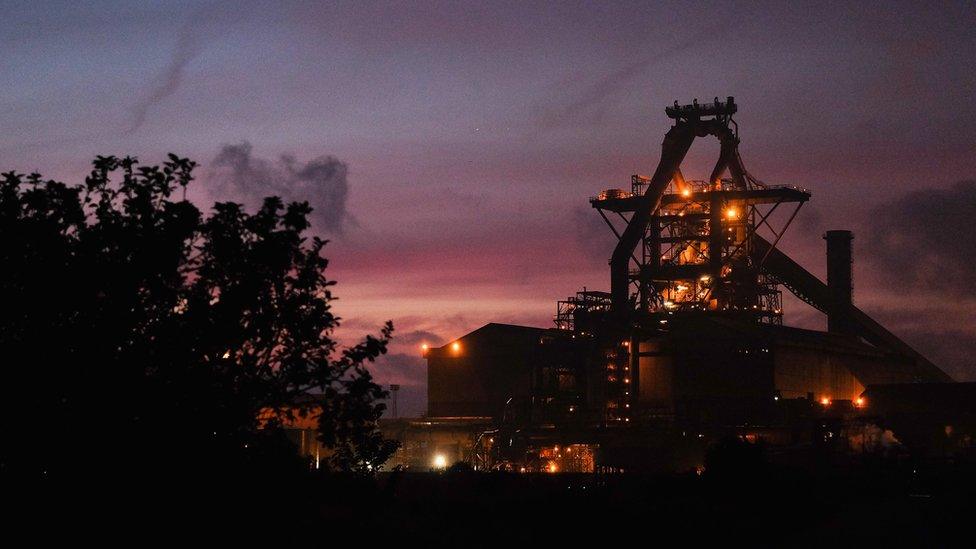
Last month SSI UK said it was ending steel production at its Redcar plant on Teesside
It is being billed as a top-level crisis summit. Government ministers, unions and steel company bosses are heading to South Yorkshire to discuss what can be done to help an industry hit by tough global market conditions.
UK steelmakers say it's getting harder to compete because of high energy costs, green taxes, the strong pound and cheap Chinese imports flooding the market. Compared to foreign competitors, steel unions warn the cost of making steel in the UK is too high.
The recent closure of SSI's steelworks at Redcar on Teesside, with the loss of more than 2,000 jobs, has brought into sharp focus the difficulties facing the industry. The Thai firm said a slump in demand for steel was behind its decision.
At other steelworks across the country, from South Wales to Scunthorpe to Rotherham, union leaders says thousands of jobs are hanging in the balance. So what's next for the UK's steelworkers?
Cost cutting
For more than a century steelmaking and Scunthorpe are words that have gone together naturally.
The blast furnaces tower over the North Lincolnshire town. Tata Steel is the UK's biggest steel manufacturer and the town's largest employer. At its height the Scunthorpe works employed more than 17,000 people - today just over 4,500 work there.
Now the Indian-owned company is under pressure to cut costs as global steel prices have almost halved.
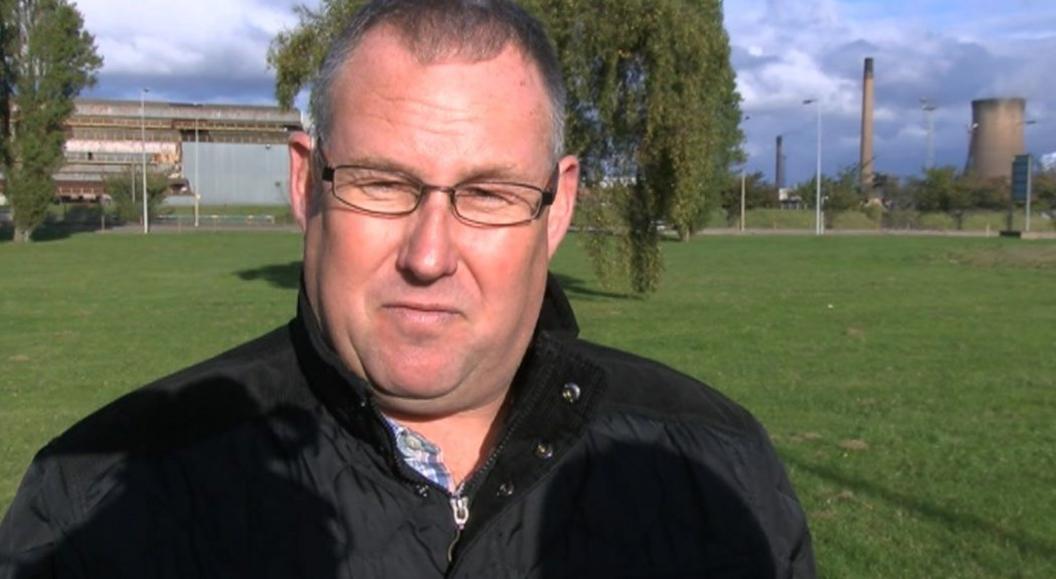
Steel union activist Tony Gosling says he fears for the industry's future
Tony Gosling has worked at the plant for 28 years, following in the footsteps of his father, grandfather and great grandfather. He's a Labour town councillor and trade union activist and says many people are anxious about the future.
"The government needs to act now. Lower those carbon taxes and lets have a level playing field with the rest of Europe," he said.
"Otherwise, it's going to be another death knell for UK manufacturing. I won't have a future. My sons won't have a future. This town with be devastated and will become a ghost town.'
Local economy
The site makes steel for the railway and the construction industry. It rolls rail track up to 120m long. Steel from Scunthorpe has helped to build the Humber Bridge, parts of Heathrow Terminal 5 and the new Wembley Stadium.
"When I was a small boy growing up in Scunthorpe everyone down our street was a steel worker. This is a big contributor to the local economy, supporting 10,000 jobs. The wealth it creates currently and in the past is immeasurable.
"We don't want any plant closures. The steel industry is one of the last bastions of what made Britain great and it's going down the pan fast. Central government and local government must act now. Rhetoric is no good."
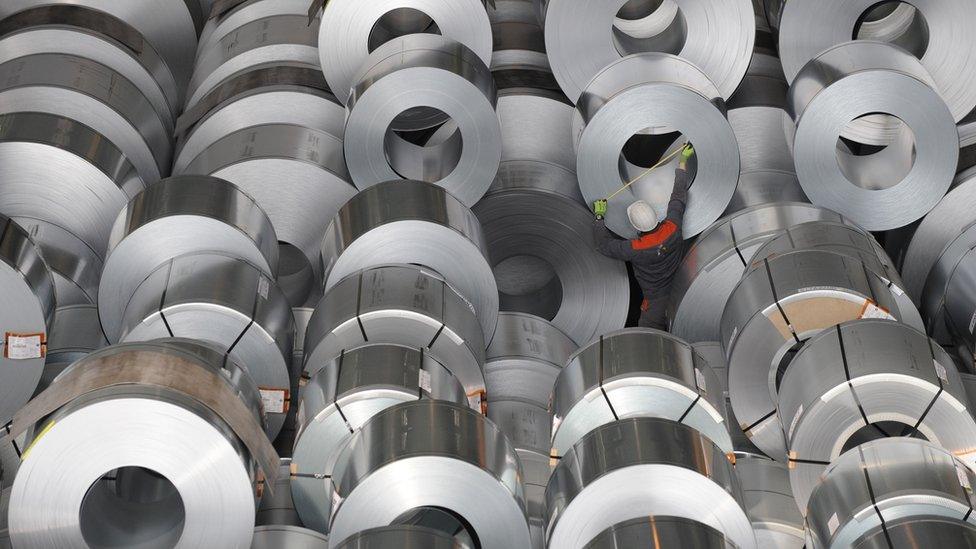
Demand growth for steel in Europe is also expected to slow this year
Uncertainty has hung over the steelworks. Tata Steel's loss-making European long products unit has been up for sale for more than a last year. It serves the construction and engineering industries and employs 6,500 people in Britain and elsewhere on the continent. A deal with American billionaire Gary Klesch collapsed this summer.
'Perfect storm'
Scunthorpe's Labour MP Nic Dakin, one of those who has put pressure on the government to hold today's summit, says following the demise of the SSI plant in Redcar, he's even more determined to ensure Tata Steel remains in the town.
'I look to the prime minister. This is a real test for him to demonstrate that steel, as a strategic industry for the UK, is important. He needs to make sure appropriate actions are taken to there is a positive future.'
'Steel product produced by Scunthorpe is some of the best steel in the world, if you look at things like rail.
The workforce at Scunthorpe has done everything that's been asked of it by management. There are lots of positives, but we are facing a perfect storm and the government must act so that the future is bright.'
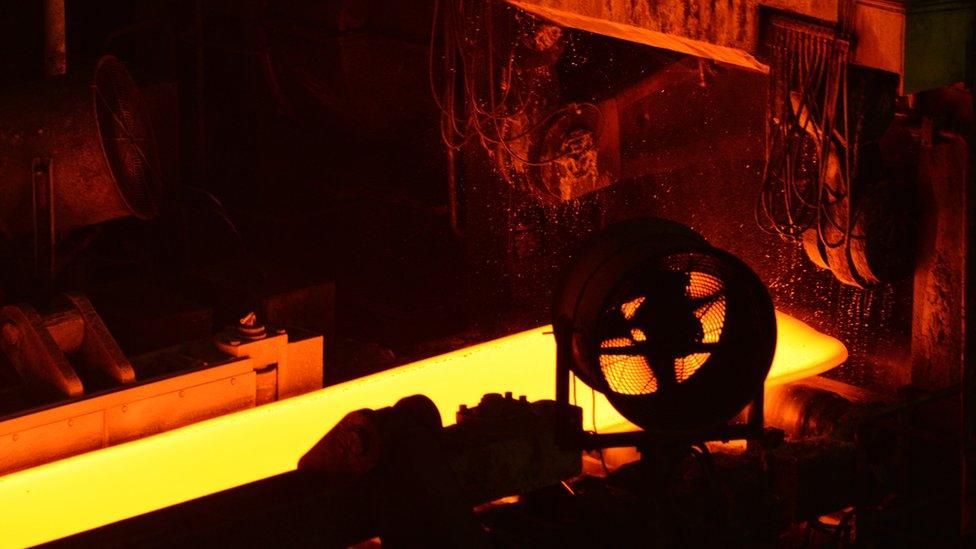
Chinese steel producers have selling abroad at a loss, in order to maintain their own production lines
So what can the government do?
UK steelmakers want lower business rates, a relaxation of emissions targets for heavy manufacturers, more compensation for high energy prices and a commitment that British steel is used in major construction projects.
"We've set out some of the things government can press ahead with now to send out a clear signal of support in the very short term," said Gareth Stace, director of UK Steel.
"At the top of that list is a clear and unambiguous commitment to fully implement the energy intensive industries compensation package, which will go some way to rebalancing the crippling costs of electricity for British steel making firms," he continued.
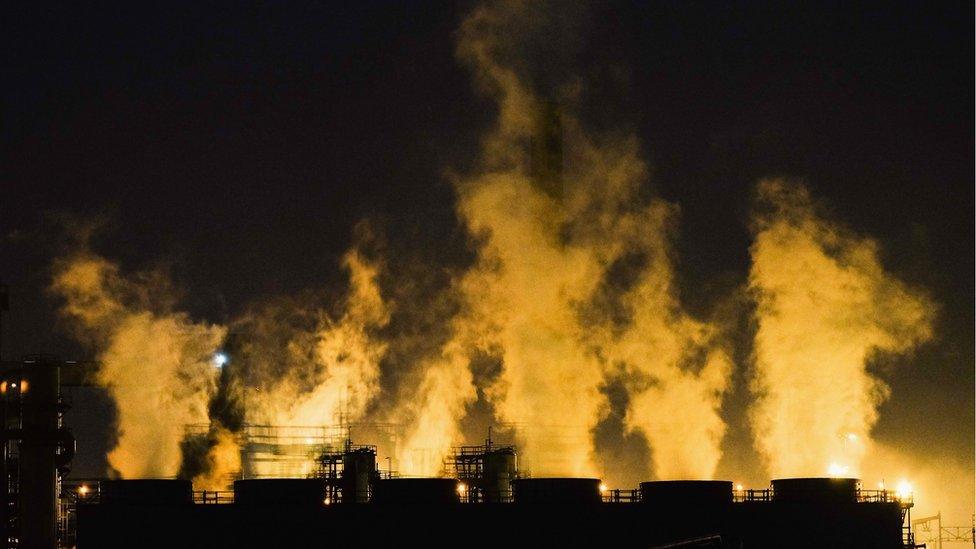
Steel has been produced at Redcar since 1917
How does the government act without going against its free market principles and breaking EU rules? It has already provided steel makers with millions of pounds in compensation for carbon permit costs. Beyond that it says its hands are tied by strict European Union state-aid rules.
Business Secretary Sajid Javid, who will be chairing the summit, said: "This is a hugely difficult time for the steel industry across the world - one of the toughest times ever. It is a worldwide problem, and while it will not be solved overnight, we will work closely in partnership with the industry to help find some answers.
UK steel, the trade association representing the industry, estimates that the sector employs 30,000 people, often in areas with high unemployment rates. It supports many other manufacturers in the wider supply chain, including aerospace, defence and construction.
The aim of the steel summit is to establish how the industry and the government can work together and map out a future, sustainable path for the industry.
Workers in Scunthorpe have anxiously watched events unfold on Teesside. They hope the summit can be more than just a talking shop and will lead to decisive action. But the global economy is casting a dark shadow over the local workforce and there is no quick fix to the industry's problems.
- Published15 October 2015
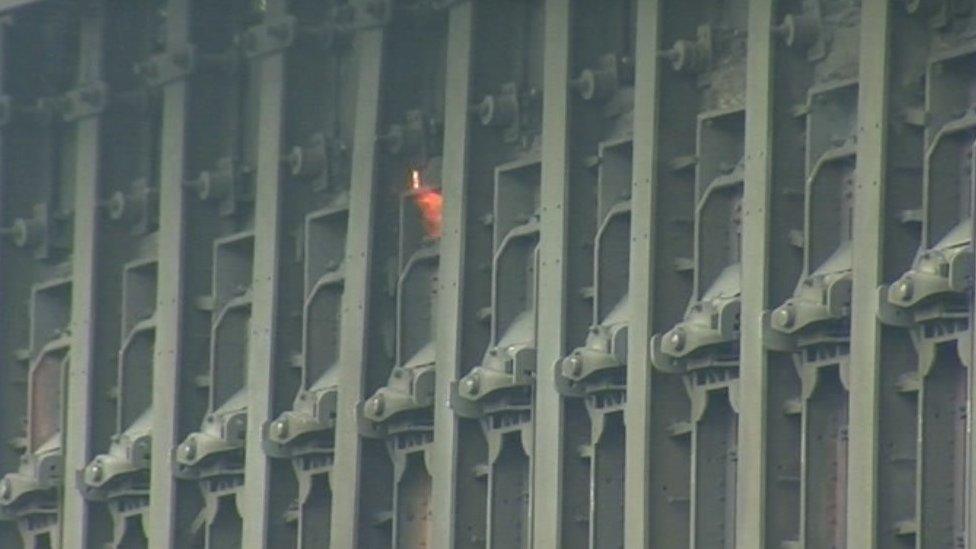
- Published14 October 2015
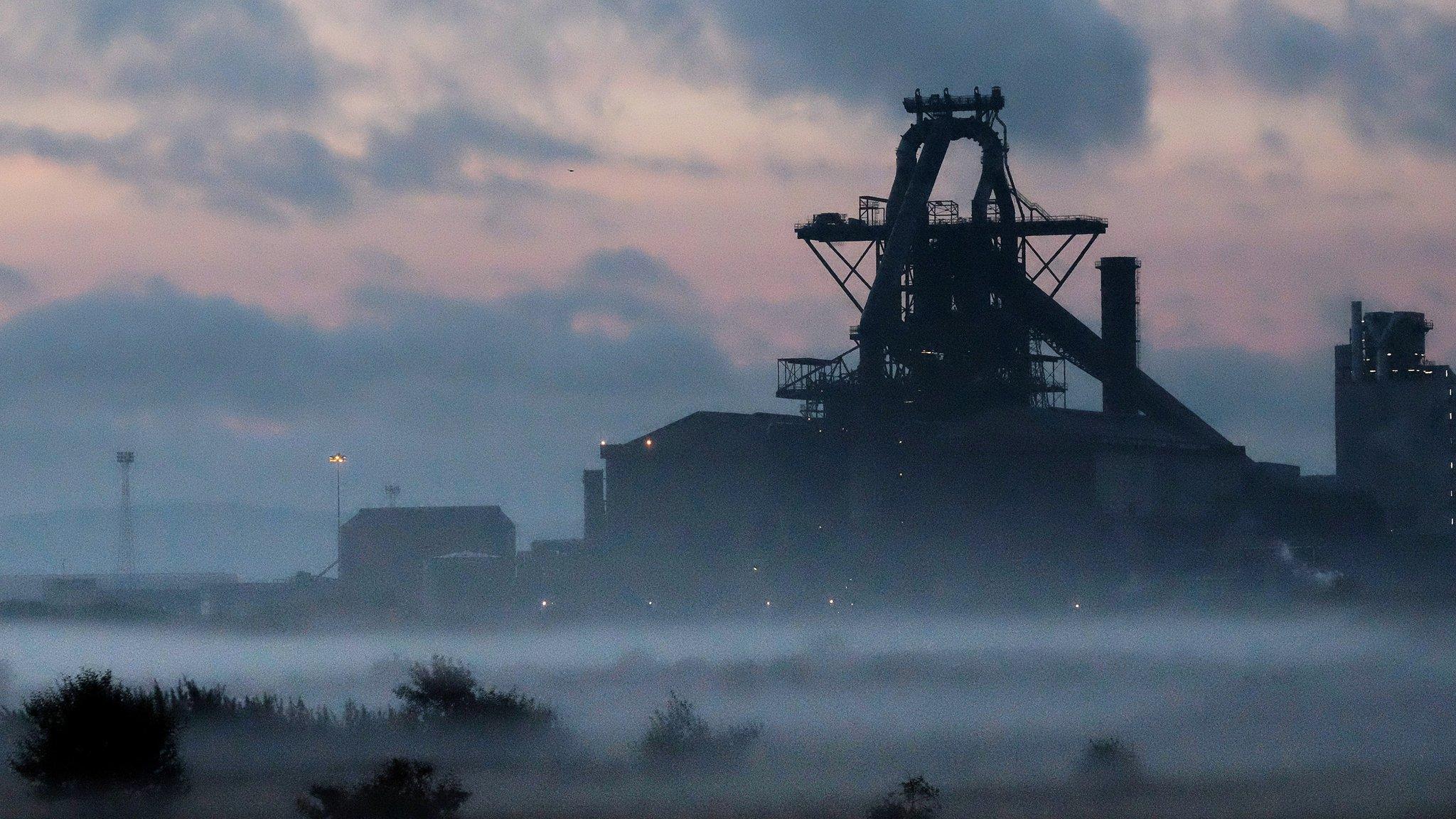
- Published13 October 2015
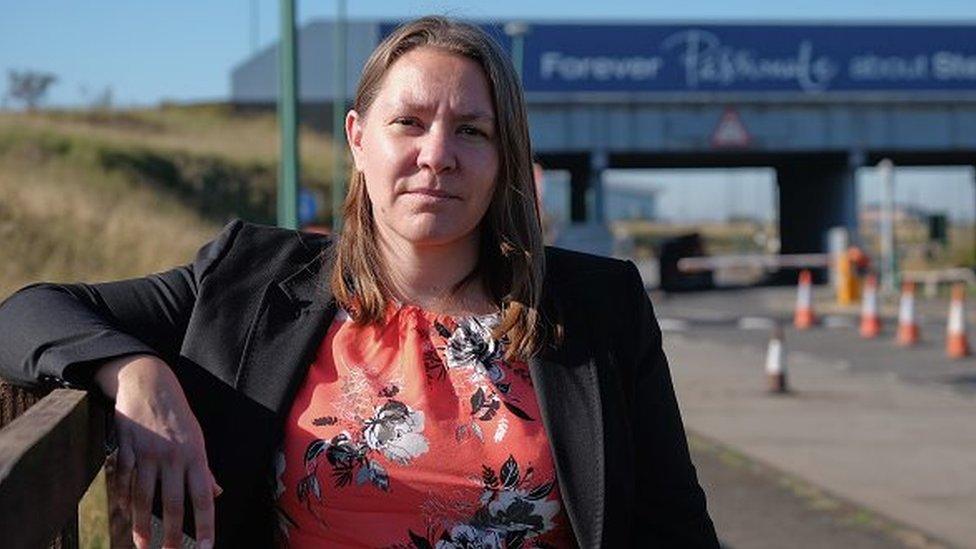
- Published12 October 2015
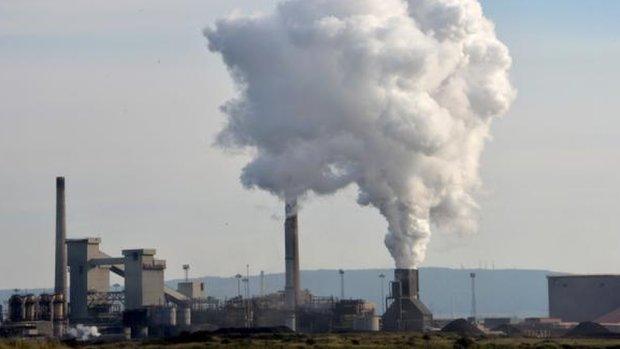
- Published12 October 2015
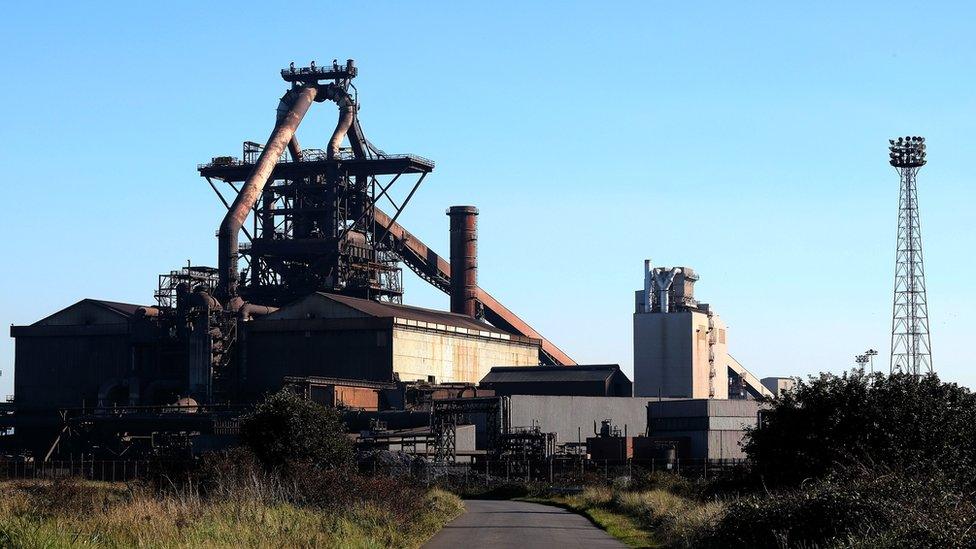
- Published20 October 2015
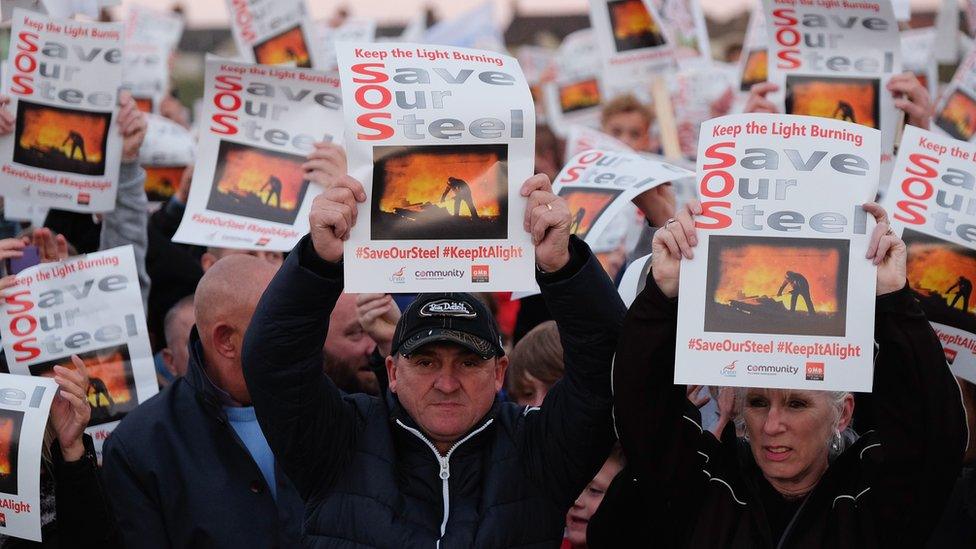
- Published29 September 2015
